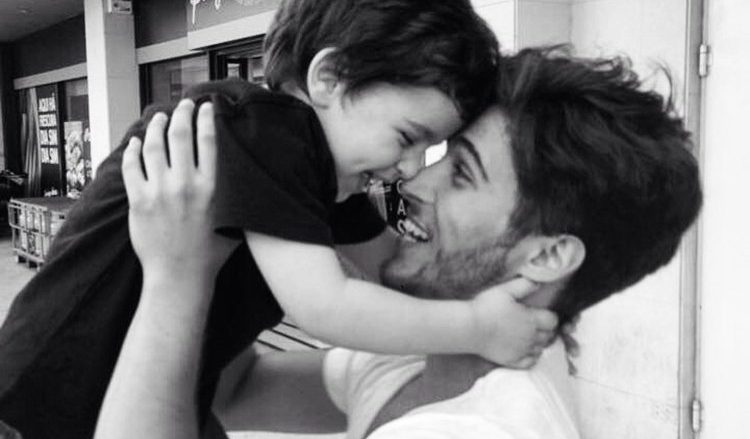How Fathers, Present and Absent, Shape Our World
By Josh Grambow | June 17, 2018, 7:01 EDT

In the wake of national tragedies in schools at Sandy Hook, Parkland, and most recently Santa Fe, the simple question “Why?” resounds. As long as mass shootings perpetrated by America’s young men continue to multiply, it is a question that will never rest.
In the process of finding out the “how” and the “who,” we often lose sight of the importance of “why.” The nation, and its politicians, seem intent on addressing only the “how” – namely, determining the future of gun rights in America – yet care not for the answer to “why.” While we can blame the prevalence of guns or the lack thereof in school zones for how many lives we have lost to school shooters, neither of these causes young men to commit unspeakable acts of violence. Ian Black, writing for the New York Times, says “The Boys Are Not All Right,” offering the answer that a full discussion of what it means to be a man, and any clear idea resulting from it, are not present in American culture:
“Men feel isolated, confused and conflicted about their natures. Many feel that the very qualities that used to define them — their strength, aggression, and competitiveness — are no longer wanted or needed; many others never felt strong or aggressive or competitive to begin with. We don’t know how to be, and we’re terrified.”
Mr. Black points to an emerging truth which resonates with American men – we no longer have a clear concept of what it means to be a man. This type of wisdom cannot be fully understood though school teaching, reading, or scholarship. Rather, it is something that must be learned by observing and interacting with wise men – namely, one’s own father.
Tragically, the role of the father in Western society has been in precipitous decline, with nearly one in three children now being born into fatherless homes in the United States. That is an ominous statistic. Examining the lives of recent school shooters, we find that 82% grew up in broken homes with at least one parent absent. Six out of seven young male shooters on CNN’s recently published list of “Deadliest Mass Shootings in Modern U.S. History” were not raised to adulthood by their fathers. This suggests that the absence of a father in the lives of at least some young men can be catastrophic. If fatherlessness really is a contributing factor in these tragedies, does it manifest in other ways as well? Even a cursory look at census data and social science research shows that it does indeed.
Venturing into the world of the fatherless in America, we find a bleak and tragic tale. Children in fatherless homes are twice as likely to live in poverty compared to all families in America, and four times as likely to live in poverty compared to children living with a married father and mother. Even when controlling for income, odds of incarceration are significantly higher in fatherless households. Students from fatherless families have twice the risk of dropping of of high school as those from homes with a married father and mother. Girls, too, clearly suffer from the lack of a responsible image of what it means to be a man – those who grow up in fatherless families are twice as likely to experience teen pregnancy than those with mother-father families.
Nationwide, children from fatherless homes are more likely to live in poverty, suffer academic underachievement, become incarcerated, experience violence, become pregnant as a teen-ager, and more – but does this hold true in our commonwealth? A 2017 Massachusetts Family Institute report shows that, unfortunately, the stories of our boys are no different. Of all children in Massachusetts living in poverty, 51% have grown up with a never-married mother and 26% with a divorced or separated mother, in contrast to only 5% with a married father and mother. Median household income is consistently lower in Massachusetts cities like Springfield, Boston, and Lynn, where the percentage of children in married-parent households is lowest. Of children who have experienced neighborhood violence, 25% had never-married mothers and 16% divorced or separated mothers, compared to 4% with both married parents. Forty-one percent of all children experiencing violence in their Massachusetts neighborhoods grew up in fatherless families, compared to 4% who grew up with both married parents.
In short, the numbers are clear: fatherless children in our nation and our Commonwealth are at a severe disadvantage. Our boys, and girls, are not all right when growing up without a model of responsible manhood from their fathers. In the face of nationwide problems like gun violence, intergenerational poverty, and academic underachievement, to name a few, it must be acknowledged that the increasingly diminished and absent father is both a cause and a perpetuating factor of these maladies. Without recognizing and combatting this problem, Americans and our political representatives will continue to try attacking the “how” questions of these problems rather than their root causes. If we hope to equip our nation’s children for responsible citizenship to secure a bright American future, we must bring back our fathers.
So this Father’s Day, let’s take time not only to thank those fathers who have taught their children about manhood, but also to recognize the basic value of fatherhood itself. In a society that increasingly devalues the responsibilities and importance of fathers in the lives of their families in the face of clear evidence of their importance, let’s simply ask, “why?” Only then can we truly celebrate, understand, and look forward to the future of this day.
Josh Grambow is a rising junior at Gordon College in Wenham, Massachusetts and a Policy Intern for Massachusetts Family Institute.











